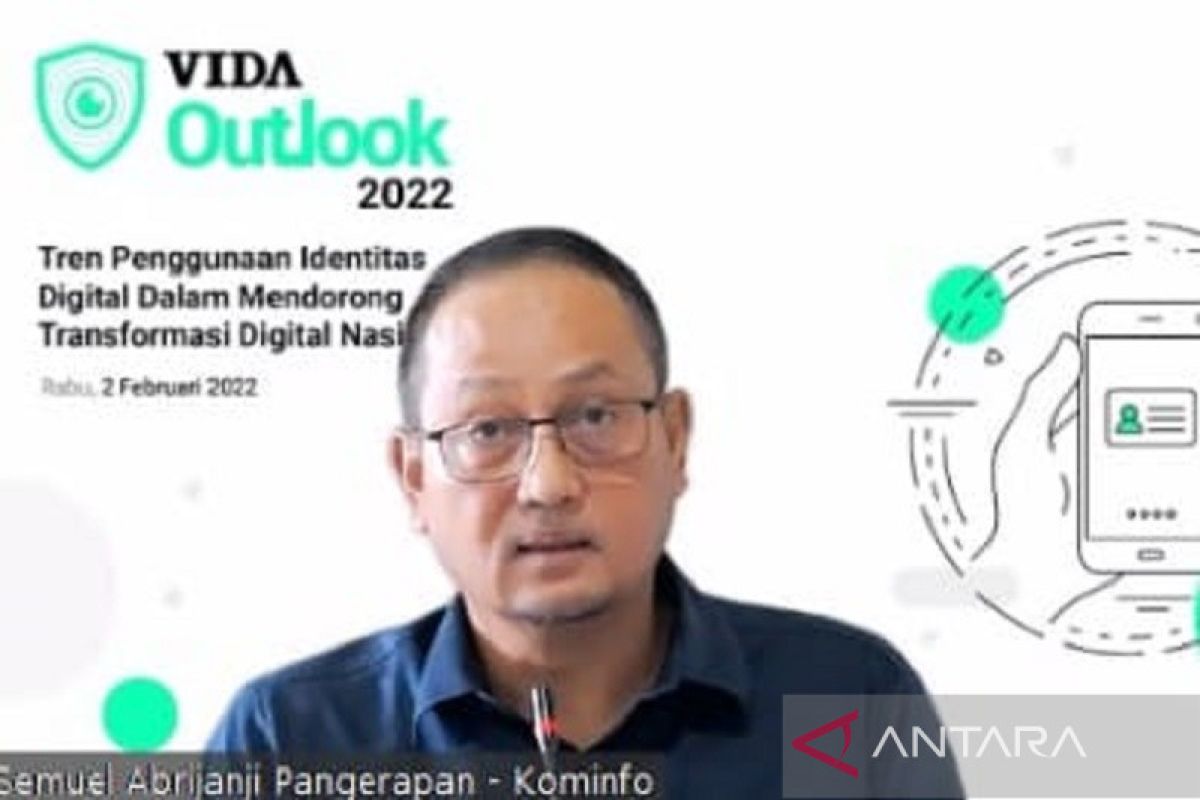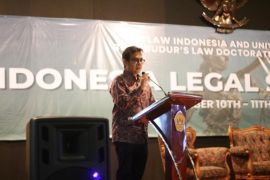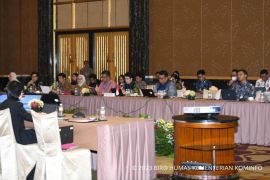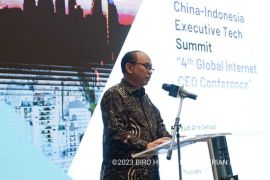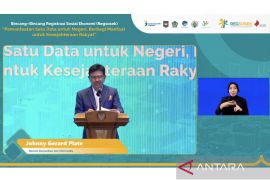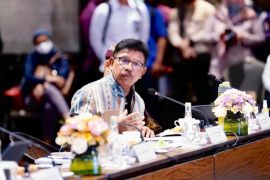Thus, it will save a lot of costs.Jakarta (ANTARA) - The Communication and Informatics Ministry is trying to secure electronic transactions by developing digital identity as well as data authentication infrastructure along with Bank Indonesia and the Financial Services Authority (OJK), an official has said.
"For optimizing the benefits of the implementation of digital identity in Indonesia, we are attempting to establish a national digital system and electronic transaction governance along with other ministries and institutions," director general of information application at the ministry, Semuel Abrijani Pangerapan, informed during a webinar on Wednesday.
Six efforts are being made to support the development of secure electronic transactions and a digital identity ecosystem in Indonesia, he added.
Related news: Financial innovation, risk mitigation must go together: BI
The first effort is the establishment of adequate digital infrastructure to ensure Internet availability throughout Indonesia by installing fiber optics, constructing Base Transceiver Stations (BTS), and managing the communication frequency spectrum, he informed.
The next effort is the verification of users' identity, while the third is data authentication for proving that the user has accessed the data source or asked for the digital service, he said. The second and third efforts are under the authority of the Home Affairs Ministry, he added.
The fourth effort is the development of electronic signatures by the Communication and Informatics Ministry for online transactions, he said.
The fifth effort is the digitization of banking sectors, he disclosed. For this, Bank Indonesia and OJK will work to develop cashless transactions and online banking account opening, he explained.
Related news: Indonesian gov't intensifies Industry 4.0 collaboration
The sixth attempt is developing secure data authorization, he added.
"In the future, the ministry will prepare more regulatory frameworks regarding the development of digital identity in Indonesia, build a trust-based digital ecosystem, and strengthen our digital human resources," Pangerapan said.
The current regulatory framework supporting digital identity development in Indonesia includes the Electronic Information and Transaction Law (UU ITE), Government Regulation (PP) Number 71/2019, as well as Regulation of Communication and Informatics Minister Number 11/ 2018, he noted.
Digital identity must be realized in Indonesia because it can prevent criminals from using other people’s personal identities and save service costs, he emphasized.
"Every certificate or identity document issued by one Electronic Certificate Provider (PSrE) can be recognized by other PSrEs and platforms. Thus, it will save a lot of costs,” he elaborated.
Related news: Inclusive digital transformation pursued under RI's G20 Presidency
According to research conducted by consulting firm McKinsey & Company in the United States in 2019, such efforts can help save US$130 billion since everyone just needs to create their identity document once, he informed.
"Other countries, such as Malaysia and Australia, have also encouraged digital identity development. Hence, Indonesia should not lag behind on the matter," he added.
Related news: President drives to Parapat Beach, Lake Toba on motorbike for review.
Related news: Over 1.56 million tourists visited Indonesia last year: BPS
Translator: Suci Nurhaliza, Uyu Liman
Editor: Fardah Assegaf
Copyright © ANTARA 2022
